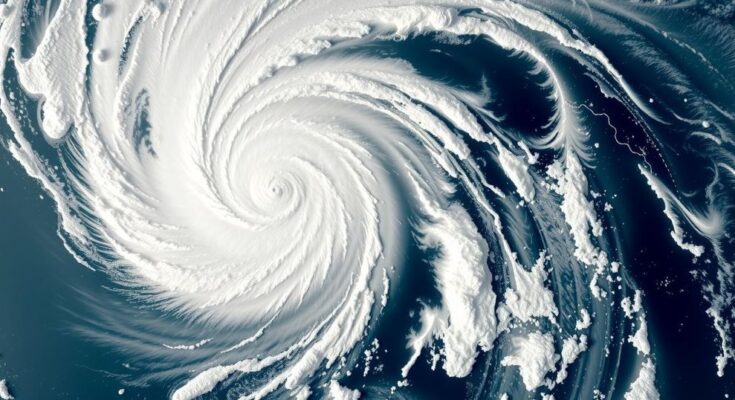Tropical Cyclone Chido has impacted Mayotte and the Comoros as of December 14, 2024, with about 2.5 million people at risk in its path. Damage reports include destroyed homes and flooding in Anjouan. Chido is expected to bring dangerous weather conditions to Mozambique and Malawi in the following days, prompting emergency alerts and preparedness action from local authorities.
As of December 14, 2024, Tropical Cyclone Chido has struck the islands of Mayotte and the Comoros, producing strong winds and heavy rainfall. Approximately 2.5 million individuals are within the projected path of the cyclone, with over 1.7 million residing in Mozambique, 440,000 in Malawi and nearly 370,000 in the Comoros. The cyclone’s intense winds have resulted in reports of flooding and damage in the affected areas, notably in Anjouan, where several homes and structures have collapsed, prompting evacuations and sheltering with host families. There are ongoing search efforts for missing fishermen in Ngazidja.
Tropical Cyclone Chido formed in the southeastern Indian Ocean Basin on December 7, 2024, and has since escalated to an intense tropical cyclone affecting various regions in Southern Africa. The cyclone’s trajectory indicates significant impacts across multiple countries, necessitating comprehensive emergency responses and preparedness measures to mitigate the risks posed by extreme weather events associated with cyclones, such as flooding and mudslides. Regional meteorological services and disaster management authorities are working collaboratively to monitor the cyclone and execute plans to protect affected populations.
In conclusion, Tropical Cyclone Chido poses a significant threat to millions in Southern Africa, particularly Mozambique, Malawi, and the Comoros. Regional authorities are actively coordinating response efforts, conducting assessments, and implementing precautionary measures to safeguard communities. The impacts of the cyclone include severe weather conditions, strong winds, and heavy rainfall, with immediate needs for humanitarian assistance and potential disaster response to support the affected populations.
Original Source: www.unocha.org




